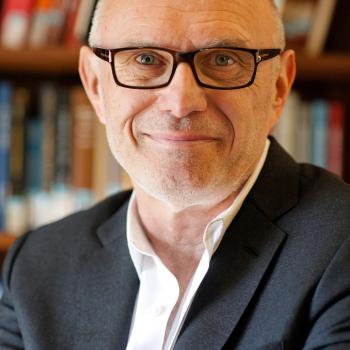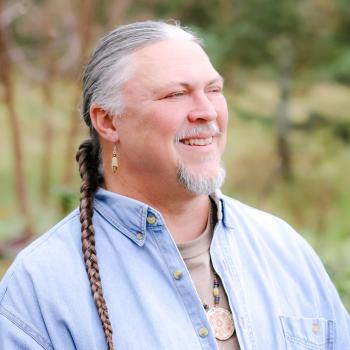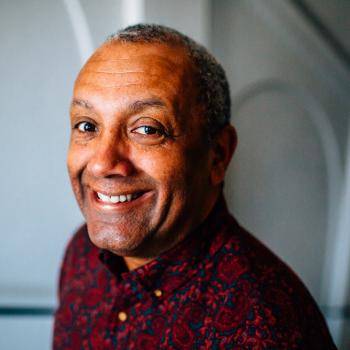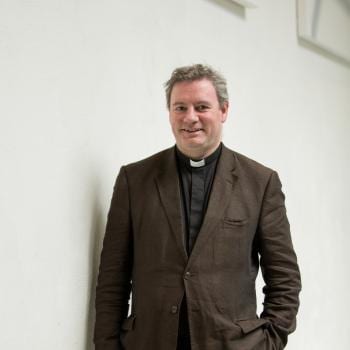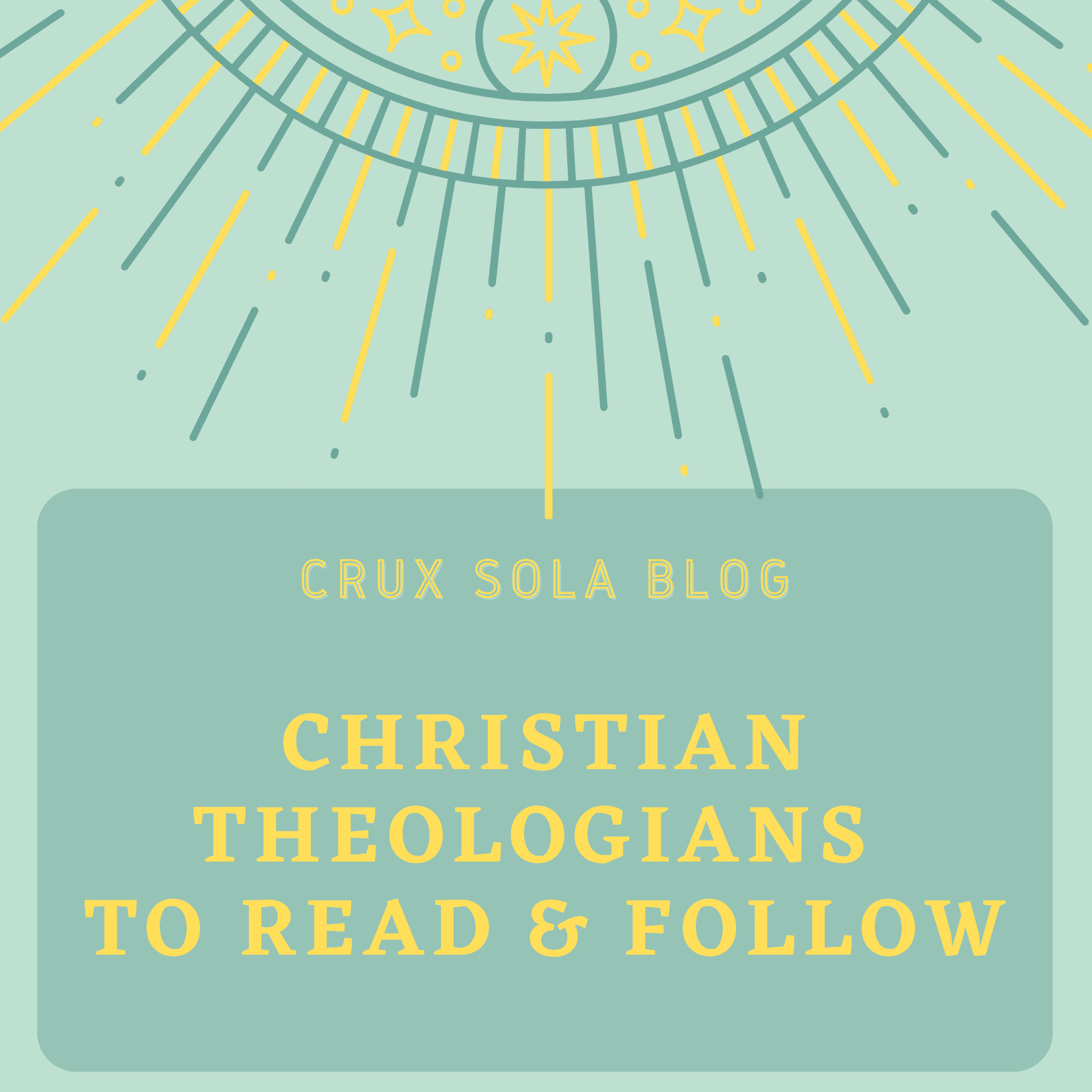
Kristen Deede Johnson, Professor of Theology and Christian Formation, Dean and Vice President of Academic Affairs, Western Theological Seminary
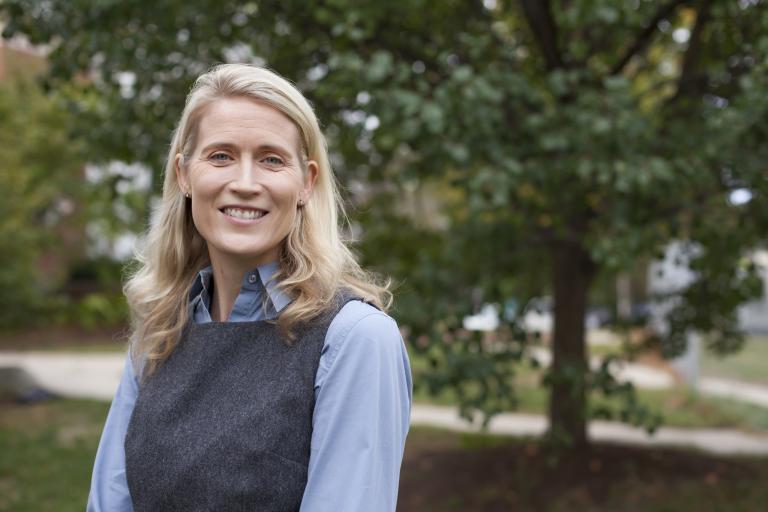
Why do you love teaching and researching about Christian theology?
Discovering the beauty of Trinitarian theology while pursuing my PhD transformed my own faith. I was invited deeper into communion with God through my growing understanding of the Father, the Son, and the Holy Spirit. Through my studies and readings, as well as active wrestling with fellow graduate students about what we were learning, I came to see how much more grace there was to the call to discipleship than I had previously understood. It was not always easy or comfortable, but it was so very good. This continues to be true of every research project I undertake. As I read more deeply on a certain topic, going back into the tradition, reading contemporary voices, and diving into Scripture, God sanctifies and refines my previously held convictions in ways that draw me further into life with Him and enable me to more fully love my neighbors. This is what I hope and pray happens to students as they encounter theology in their courses as well. To walk with students as they encounter the expansiveness of their faith, the depth of God’s love for them and for the world, and the empowering grace that enables them to fulfill their calling to love God and love their neighbors – that is a real gift.
What is one “big idea” in your scholarship?
Underlying all of my scholarship is the question of what it means to faithfully live as followers of Jesus Christ in this time and place—and the conviction that we need to be attentive to all sorts of dynamics that we don’t naturally assume impact how we live as disciples. Through my writings, I hope to encourage the idea that living faithfully in this world involves being attentive to the story of Scripture, the significance of theology, the formative power of culture, and the call of God to seek His kingdom through every vocation He has given us, right where we are, as we are rooted in and shaped by our local churches. I long through my scholarship to encourage intentional discipleship that is biblically rooted, theologically attentive, culturally engaged, ecclesially embedded, and vocationally integrated.
To put this differently, each morning I pray this prayer with my children, shared with me by one of my students:
“Good morning, Lord.This is your day.I am Your child.Show me Your Way.”
This simple prayer captures so much of discipleship. We confess Christ as Lord of this world and of our lives. We recognize who we are—beloved children of God in Christ. And we acknowledge that to live as God’s children in this world involves a distinctive way of life—a way made known by Jesus Christ, a way He calls us to live today. To live this way of life today as intentional disciples, we need to learn more and more about God and God’s Kingdom, made known to us most clearly and fully through Jesus Christ and Scripture. We need to be discerning about how to live this way here and now, in this cultural moment. We need to be attentive to formative practices that God can use to shape us to be people who seek first the Kingdom of God and His righteousness. This is why engagement with Scripture, theology, the local church, and cultural and political realities are all significant as we seek to live out God’s calling in our everyday lives.
Who is one of your academic heroes and why do you admire them?
Lately I’ve been thinking a lot about John Stott. Firmly rooted in the life of a local church, the author of numerous books and commentaries, with a ministry that extended all over the globe, “Uncle John” was exceptionally humble before God’s Word and before his fellow Christians who were located in very different social contexts. From a formation perspective, I find myself asking questions like, what enabled him to listen so well to his brothers and sisters in Latin America and Africa as they shared that evangelism had to be combined with social responsibility to be biblically faithful? How did he, of all the Western Christians of his day, with his upperclass British boarding school background, become the one who fought for worldwide evangelicalism to be attentive to and inclusive of both people and issues that were often sidelined? Remarkably, the structures he put into place continue to support and encourage the education of Christians and the growth of leaders throughout the global Church. What can we learn from John Stott that might help all of us moving forward?
What books were formative for you when you were a student? Why were they so important and shaping?
I was quite taken with Soren Kierkegaard when I was first introduced to his thought. It’s hard to identify just one book, but The Sickness Unto Death helped me think through conceptions of the self (in conversation with some early Charles Taylor). Engaging with this work also led to my first peer-reviewed journal article, so it always holds a special place in my heart.
Augustine’s City of God was by far the work that shaped my dissertation (which subsequently became my first book) the most. I was wrestling with what faithfulness looks like for Christians in the context of pluralistic political societies, engaging with a whole host of political theorists on this question. Reading Augustine shaped my theological and political imaginations in essential ways, drawing me back into the Bible and into the wisdom that our own Christian tradition holds as we grapple with these contemporary questions.
Lastly, I have to mention J. B. Torrance’s Worship, Community, and the Triune God of Grace. His son, Alan Torrance, was one of my most formative professors in grad school, and this work by his father provided the most beautiful introduction to the significance of the Trinity. Reading this little book alongside the massive volumes of Karl Barth had a tremendous impact on the ways I understood my own life with God, inviting me to enter more fully into the expansive beauty of the triune God’s amazing grace.
Read Johnson’s Work
The Justice Calling: Where Passion Meets Perseverance (with Bethany Hanke Hoang)
Theology, Political Theory, and Pluralism: Beyond Tolerance and Difference
Follow Johnson online
If you ran into me at a conference and didn’t want to talk theology, what would you want to talk about?
I have a love for activities that get me into God’s creation, and perhaps even more especially for outdoor activities that are associated with adrenaline! I don’t find ways to pursue those adrenaline rushes as readily as I used to, but I’d love to talk about outdoor adventures as well as how you weave rest and time in the created world into your life.
What is a research/writing project you are working on right now that you are excited about?
While questions of discipleship have always motivated my scholarship, I am very excited that I am now turning to address discipleship more directly. Many Christians are raising important questions that lie at the intersection of discipleship and formation, asking what it takes to form integrated, intentional disciples (and noting that there seem to be dynamics at play that often keep that formation from happening). I’ve been going deep into some recent history within U.S. Christianity, trying to better understand where our contemporary notions of discipleship come from so that we might be better able to grapple with the problems and challenges we’re seeing within American Christianity today. It’s led me into some fascinating terrain – including into the history of the Great Commission. It turns out that “the Great Commission” as a term is not very old! The Great Commission has had tremendous significance for conversations about discipleship within the past century, but it does not even begin to have influence until the 20th century—and even uncovering that history has been surprisingly difficult (and extremely illuminating). More to come soon, I hope!









